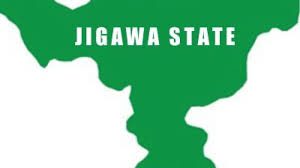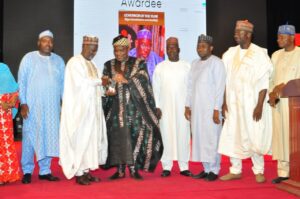Honey Export: NEPC trains 100 beekeepers in Nsukka, on quality honey for export
Nigerian Export Promotion Council (NEPC), has trained 100 beekeepers in Enugu North Senatorial district, on how to produce quality honey and its by-products that will meet international standard for export.
The one-day capacity training on building/intervention programme on the development of honey and honey by-products for export, was organised by NEPC in collaboration with Aku JOFRAN Global Concept (AJGC).
In a remark on Friday at the training at Nsukka, the Executive Director (ED) of NEPC, Dr Ezra Yakusak, said that the objective of the training was to teach participants on how to produce honey and its by-products that would be fit for export to any part of the world.
Yakusak said that honey had become a lucrative business globally as many countries made millions of dollars yearly from exporting honey and its by-products.
“This training is apt as the agriculture sector is a very important industry that needs to be encouraged to help boost the economy of the country.
“Nigeria needs more employment generation and export diversification to reduce over dependence on crude oil.
The ED, who was represented by the South East Regional Director, Mrs Esther Ikporah, said that the council would continue to encourage the production of quality honey and its by-products to facilitate market access of the Nsukka Honey brand to the Europe Union and other international markets.
“Participants will also learn how to process honey by-products like beeswax, propolis, pollen, royal jelly and honeycomb.
“Honey by-products like honey itself are all in high demand in international markets,” he said.
Speaking at the event, the Commissioner for Agriculture in Enugu State, Mr Matthew Idu commended the organisers of the training workshop, and urged participants to see the training as serious business that would not only earn them foreign exchange in future but would also help to boost the economy of the country.
He said the Chairman of AJGC, Chief Ifeanyichukwu Okpo is known all over because he exports quality honey and its by-products to international markets.
“I commend the organisers of this training in their wisdom to see that more honey producers get the required knowledge to enable them meet international standard in exporting honey and its by-products.
“Participants should take this train seriously as honey business has become a lucrative business globally,” Idu said.
In his speech, the Vice-Chancellor of the University of Nigeria Nsukka (UNN), Prof. Charles Igwe described Nsukka as an area known to produce original honey which many called ‘Nsukka honey.’
Igwe, who was represented by the Director, Centre for Entrepreneur and Development Research (CEDR) in the university, Bonaventure Echezomo, commended NEPC capacity building training for beekeepers in the district.
“This will bring about increased value in productivity, human resource development with resultant effects on sustainable income and food security.
“I have no doubt that knowledge gained from this training will in no distant time help produce more honey exporters in this country with global reckoning,” he said.
Earlier in a remark, Okpo who collaborated with NEPC to organise the event, urged participants to avoid adulterating their honey, which he said makes the honey unfit for consumption and export.
Okpo said he had been exporting honey for many years and his honey is known globally because he adhered to international best practices in producing, packaging and exporting honey.
“I always advise beekeepers to avoid the temptations of adulterating their honey.
“If you adulterate you honey, it will not be accepted for export and even locally anybody who buys honey today from you, will not come back tomorrow because he/she will know you added something to it.
“Honey business is lucrative nationally and internationally. If you want money from it, you must avoid adulteration,” Okpo advised.
Some of the participants said they appreciated the organisers of the event for giving the knowledge on how to make their honey and honey by-products fit for export.
Each participant at the workshop got a pair of beekeeping gloves from the NEPC.
The gloves were specially designed to curb contamination of honey during harvesting as well as protect beekeepers from bee stings.




